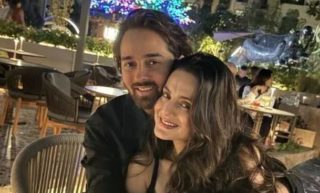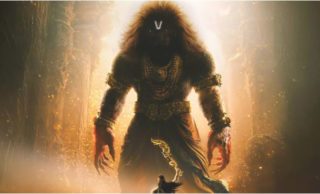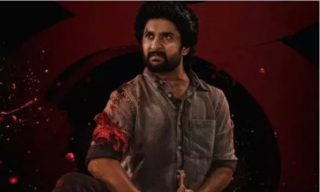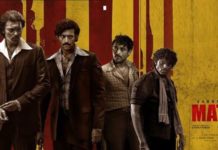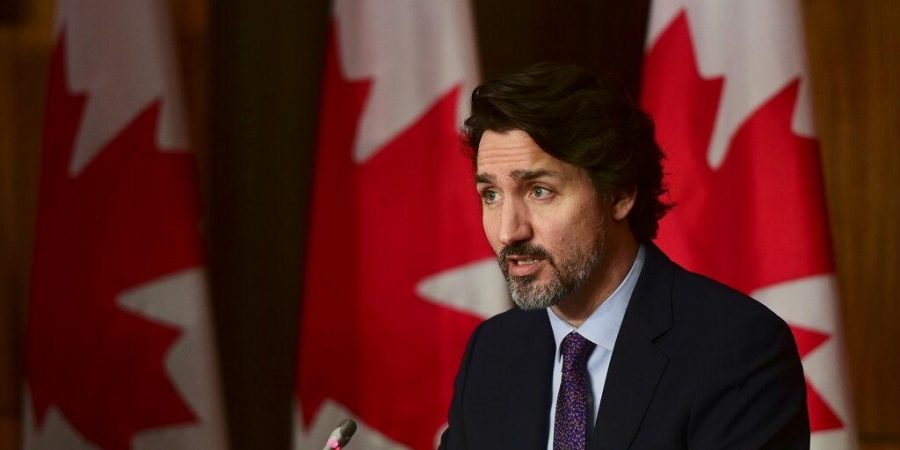 TORONTO: Prime Minister Justin Trudeau has said that residential schools for Canada’s Indigenous children were part of a larger colonial policy designed to erase language and culture and to assimilate those groups so they no longer existed as distinct peoples.
TORONTO: Prime Minister Justin Trudeau has said that residential schools for Canada’s Indigenous children were part of a larger colonial policy designed to erase language and culture and to assimilate those groups so they no longer existed as distinct peoples.
Trudeau on Tuesday said the discovery of 215 children found buried at a former Indigenous residential school in Kamloops, British Columbia, is part of a larger tragedy.
The institutions held children taken from families across the nation.
Chief Rosanne Casimir of the Tk’emlups te Secwepemc First Nation in British Columbia said the remains of 215 children were confirmed last month with the help of ground-penetrating radar.
“Children should never have been sent to those so-called schools – places where they were separated from their families and their communities, places where they faced terrible loneliness, places where they suffered unthinkable abuse,” Trudeau said in an emergency debate in Parliament.
“That is the fault of Canada.”
From the 19th century until the 1970s, more than 150,000 First Nations children were required to attend state-funded Christian schools as part of a program to assimilate them into Canadian society.
They were forced to convert to Christianity and not allowed to speak their native languages.
Many were beaten and verbally abused, and up to 6,000 are said to have died.
The Canadian government apologised in Parliament in 2008 and admitted that physical and sexual abuse in the schools was rampant.
Many students recalled being beaten for speaking their native languages.
They also lost touch with their parents and customs.
Indigenous leaders have cited that legacy of abuse and isolation as the root cause of epidemic rates of alcoholism and drug addiction on reservations.
Plans are underway to bring in forensics experts to identify and repatriate the remains of the children found buried on the Kamloops site.
Perry Bellegarde, chief of the Assembly of First Nations, said he spoke with Trudeau on Tuesday and urged him to work with First Nations to find all the unmarked graves of out stolen children” in Canada.
A National Truth and Reconciliation Commission, which was set up as part of a government apology and settlement over the schools, issued a report in 2015 and Bellegarde urged Trudeau to accelerate implementing its recommendations.
Trudeau has said he would implement them and said government has put in place the legislation to strengthen Indigenous languages and culture.
Murray Sinclair, the former chair of the reconciliation commission, said more sites will be found.
“We know there are lots of sites similar to Kamloops that are going to come to light in the future. We need to begin to prepare ourselves for that,” Sinclair said.
Sinclair said the stories about children who died in the schools during the commission’s work was shocking and said survivors talked about children being “buried in large numbers into mass burial sites.”
The reconciliation commission has records of at least 51 children dying at the school between 1915 and 1963.
It identified about 3,200 confirmed deaths at schools throughout Canada but noted the schools did not record the cause of death in almost half of them.
Some died of tuberculosis.
The commission said the practice was not to send the bodies of the students who died at the schools to their communities.
It also said the government wanted to keep costs down so adequate regulations were never established.
The Kamloops Indian Residential School was Canada’s largest such facility operated by the Roman Catholic Church between 1890 and 1969 before the federal government took it over as a day school until 1978, when it was closed.
“It was the most horrible pain in the world to be a native, to be an Indian back then,” said Clayton Peters, who spent seven years at the school.
Peters and his brothers were forcibly taken to the school in 1967.
He remembers thinking that kids who suddenly disappeared from there were lucky because they had managed to escape, saying his unsuccessful attempt to get away led to harsh consequences.
“I always thought they ran away like I did, that they made it, that they were free,” he said crying.
Now, he thinks some of the children he knew may be buried at the site.

